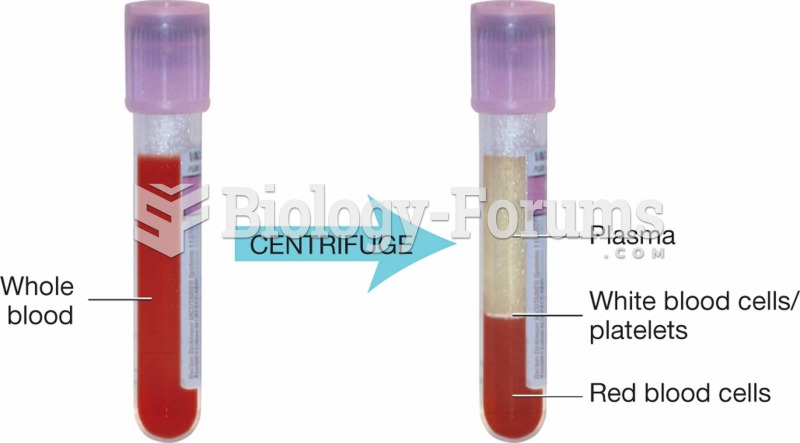|
|
|
Chronic necrotizing aspergillosis has a slowly progressive process that, unlike invasive aspergillosis, does not spread to other organ systems or the blood vessels. It most often affects middle-aged and elderly individuals, spreading to surrounding tissue in the lungs. The disease often does not respond to conventionally successful treatments, and requires individualized therapies in order to keep it from becoming life-threatening.
The horizontal fraction bar was introduced by the Arabs.
According to research, pregnant women tend to eat more if carrying a baby boy. Male fetuses may secrete a chemical that stimulates their mothers to step up her energy intake.
The people with the highest levels of LDL are Mexican American males and non-Hispanic black females.
For about 100 years, scientists thought that peptic ulcers were caused by stress, spicy food, and alcohol. Later, researchers added stomach acid to the list of causes and began treating ulcers with antacids. Now it is known that peptic ulcers are predominantly caused by Helicobacter pylori, a spiral-shaped bacterium that normally exist in the stomach.
 Draw and label a diagram and explain how a factor-dependent transcription (rho-dependent) terminator
Draw and label a diagram and explain how a factor-dependent transcription (rho-dependent) terminator
 Plasma insulin binds to receptors on target cells to enter the cells, which starts actions that lead ...
Plasma insulin binds to receptors on target cells to enter the cells, which starts actions that lead ...





